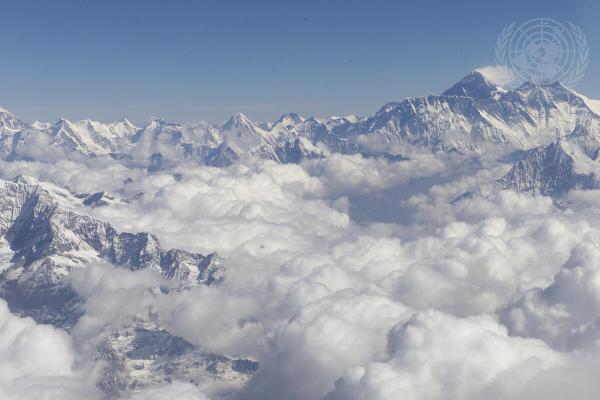COVID-19 Lockdowns Have Slowed Snowmelt In Indus River Basin
Study Shows Cleaner Air Can Lead To Improved Water Supply, Slow Climate Change
30 Apr 2021 by The Water Diplomat
SANTA BARBARA, California

A reduction in particulate matter deposited on Himalayan snow from air pollution as the result of 2020 COVID-19 lockdowns is the most likely reason for a slowdown in this season's snowmelt in the Indus River Basin, according to researchers at the University of California.
"By causing more solar radiation to be reflected, cleaner snow/ice could mitigate climate change effects by delaying melt onset and extending snow cover duration," research shows.
It is thought that slower runoff can also be beneficial to downstream communities by helping to maintain a steadier water flow over a longer period. The Indus River supplies water for more than 300 million people.
The researchers used NASA satellite images to analyse the presence of light-absorbing particles (LAP) on the snow surface in the region that feeds the Indus River. They observed a 30 percent reduction in LAP in the spring and summer of 2020 compared with the 20-year average, and calculated that this affected the timing of 6.6 cubic kilometres of melt water.
Multiple studies of the region have found that sufficient quantities of dust and soot on the snow/ice surface degrade the diffuse reflection of solar radiation, known as albedo, which leads to additional absorption of the sunlight wavelengths that cause snow to melt.
With last year's widespread coronavirus lockdowns known to have resulted in cleaner air in a number of regions that usually suffer from high levels of air pollution, the researchers wanted to examine what effect, if any, this may have had on snow pollution.
The study concludes that a more thorough in-situ analysis would be necessary to draw definitive conclusions on the exact cause of the substantial reduction in LAP in 2020, but presumes COVID-19 lockdowns as the most likely cause.
While the resumption of normal economic activity in many areas was associated with a rapid return to pre-COVID levels of air pollution, the study's authors suggest that it "demonstrates how changes in human behaviour can affect the water supply for billions of people."
Photo credit: UN Photo/Eskinder Debebe
